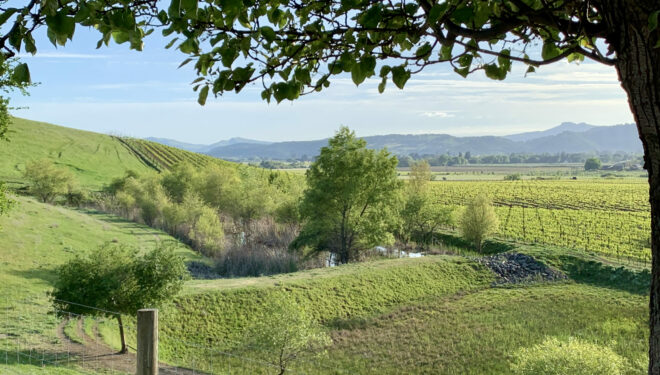
By Lauren J. Caster and Derek Hoffman
The First District Court of Appeal, in a partially published opinion, has affirmed a trial court’s rejection of a challenge to various charges imposed by the Mendocino City Community Services District (District) without first obtaining voter approval. [Gomes v. Mendocino City Community Services District, ___Case No. A167862 (1st Dist. Apr. 14, 2025).]
Background
Cal. Water Code §§ 10700 through 10717 (Act) authorizes the District to establish programs for the management of groundwater resources and imposes procedures the District must follow to enact such a program, including noticed public hearings and an opportunity for registered voters to file written protests. (§§ 10703-10706) If the District proposes a groundwater management program that garners protests from more than 50 percent of eligible voters, the program shall be abandoned, and the District may not consider another program for a period of one year. (§ 10706). The procedures codified in §§ 10703 to 10706 are mandatory.
The Act also authorizes the District to fix and collect rates for the extraction of groundwater (§ 10708), and to levy a water replenishment assessment (§ 10709). Before the District may levy a water replenishment assessment or otherwise fix and collect rates for the extraction of groundwater, it must hold an election and obtain the majority approval of the voting electorate (§ 10710).
The District adopted a series of ordinances and related resolutions in 2020: Ordinance Nos. 2020-1, 2020-2 and 2020-3. These measures collectively established groundwater management regulations and fees, and a water shortage continency plan. Ordinance No. 2020-1 requires, among other things, that all developed parcels in the District must have a valid groundwater extraction permit and limit groundwater extraction to an allotment approved by the District. To obtain the required permit, the property owner must submit a written application accompanied by a fee in an amount determined by the Board to cover the cost of administering this groundwater extraction permit process. Many applicants must submit a hydrological study and pay a fee as determined by the Board to cover the cost for the District to review the study. All applicants must agree to install a water meter, and once an extraction permit is issued, the permittee must submit monthly meter readings to the District. Ordinance No. 2020-1 imposes misdemeanor and financial penalties for failure to comply with its requirements and contains a prevailing party attorney’s fee provision.
Ordinance No. 2020-2 establishes water conservation policies and year-round water conservation measures, and it incorporates a water shortage contingency plan that the District adopted pursuant to a related resolution. This ordinance establishes misdemeanor and financial penalties, as well as other enforcement procedures, and contains a prevailing-party attorney’s fee provision.
Ordinance No. 2020-3 set fees and charges for the 2020–2021 fiscal year, and thereafter unless revised. This ordinance is not limited to groundwater management programs but lists all fees and charges adopted by the District.
At the Trial Court
A landowner within the District sued for declaratory and injunctive relief ruling that the District exceeded its authority and failed to proceed as required by law when adopting the 2020 measures. He argued that fees imposed by the District must be adopted pursuant to § 10710’s requirement for voter approval through an election. He did not challenge the District’s compliance with §§ 10703 to 10706 nor with Proposition 218, which have mechanisms for securing popular approval through a majority-protest procedure.
The trial court rejected all of Gomes’s claims, except that it found that Ordinances 2020-1 and 2020-2 contained an invalid provision authorizing the District to recover attorney’s fees and costs for prevailing in litigation. The trial court ruled that the District lacked statutory authority to adopt these provisions, but that they were severable. These rulings adverse to the District were not appealed.
The Court of Appeal’s Decision
The Court of Appeal ruled that the Legislature did not require voters to approve in an election all groundwater-related charges, nor did it limit application of §§10708 and 10710 to per-unit charges for extracting groundwater. A rate that requires majority voter approval is any charge that is assessed for a specific activity: “the extraction of groundwater.” A rate “for the extraction of groundwater” means a charge for extracting groundwater. The monthly charge imposed by the District on all developed parcels in the District that extract groundwater or receive extracted groundwater is not a rate for extracting groundwater. It is a fee that property owners using groundwater pay the District for groundwater management services in general. The District has authority to charge for its groundwater management services that is independent of, and not limited by, its authority to fix and collect rates for the extraction of groundwater.
The groundwater extraction permit charges also are not a rate “for the extraction of groundwater.” By paying permit-related fees, a property owner secures permission to participate in a program for the preservation of a finite groundwater resource, a program that has been implemented in accordance with §§ 10703 through 10706. Unless a property owner already has a permit, payment of permit fees is a prerequisite for participating in the groundwater program—which means the fees are a prerequisite for extracting groundwater within the district—but they are not themselves a charge for extracting groundwater. A property owner might pay to obtain a permit and allotment because the ordinance requires “all developed parcels” to have one, but that does not necessarily mean the property owner is actively engaged in extracting groundwater. There is a subtle but important distinction between a charge that is a prerequisite to an activity and a charge that is levied for actually engaging in the activity. A permit is a prerequisite to participating in an activity, here the extraction of groundwater, but having a permit does not mean the permittee is actually engaged in the permitted activity. Paying the fees is a necessary—but not sufficient—condition for the extraction of groundwater. If the permit-related fees are any kind of rate, they are a rate for obtaining a permit to extract the allotted amount of groundwater, not a rate for the extraction of that groundwater. The service for which the District is charging is its determination of how much groundwater a property owner may draw, consistent with the District’s water use standards and a site’s hydrology. The property owner pays the permit fees to obtain this assessment and approval; and the property owner pays without regard to whether—or how often—he or she actually extracts this quantity of groundwater. Indeed, Ordinance No. 2020-1 requires all owners of developed property to have a permit—and have paid the associated fees—even if they are not actively engaged in the extraction of groundwater.
Finally, the penalties the District imposes for violating its groundwater ordinances are not charges for extracting groundwater, but fines for violating the ordinances. A penalty is not a charge paid for a service or benefit. It is a mechanism for enforcing a regulatory scheme.
Conclusion and Implications
In the end, the court found:
. . .in the published portion of the opinion we reject Gomes’s claim on the merits and affirm the judgment. As we shall explain, although the ordinances Gomes challenges in this action impose fees on property owners that relate to the district’s groundwater management services, these fees are not imposed “for the extraction of groundwater” (§ 10710) and, thus, do not require voter approval in the manner set forth in section 10710.
The court’s partially published opinion is available online at https://www4.courts.ca.gov/opinions/documents/A167862.PDF



